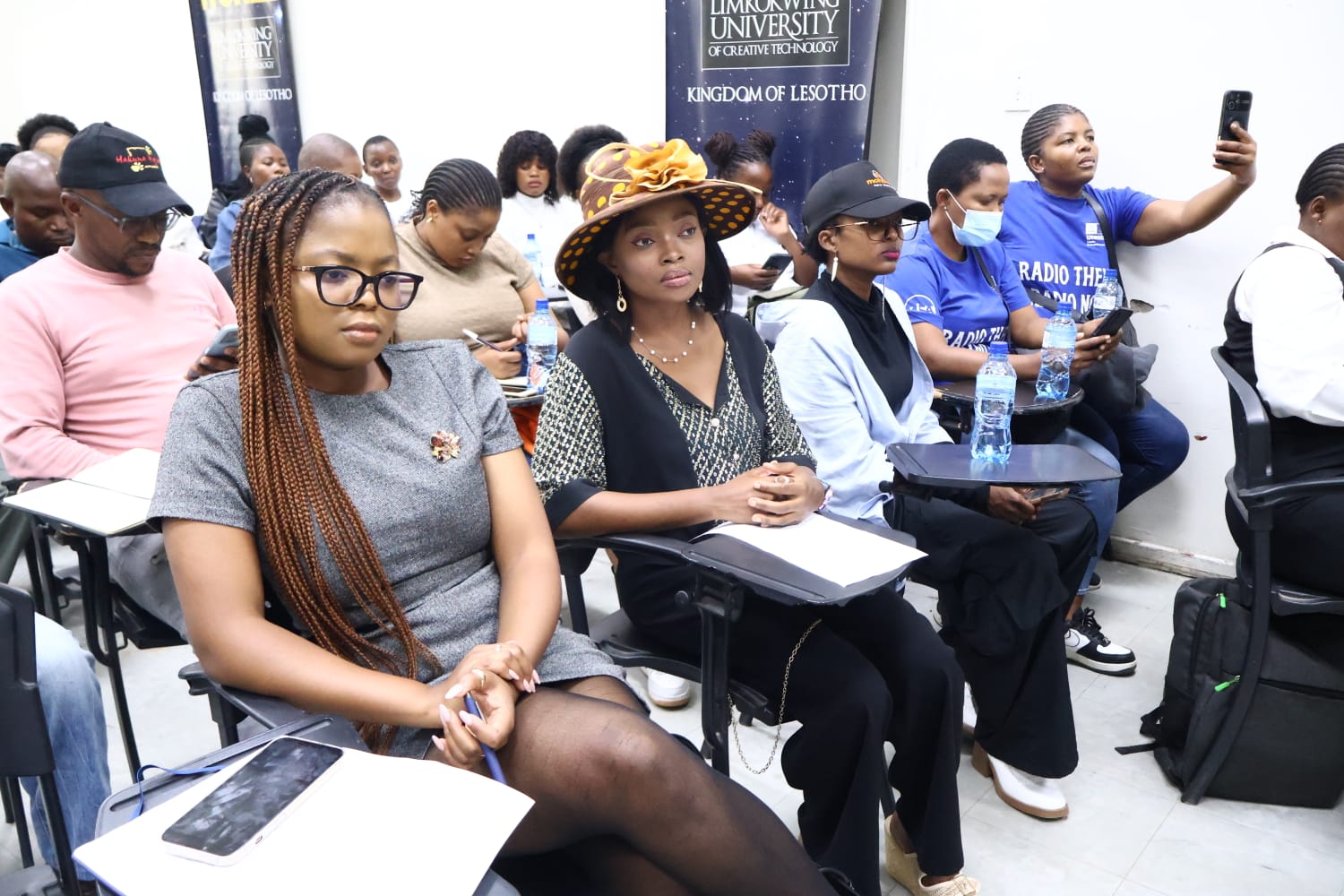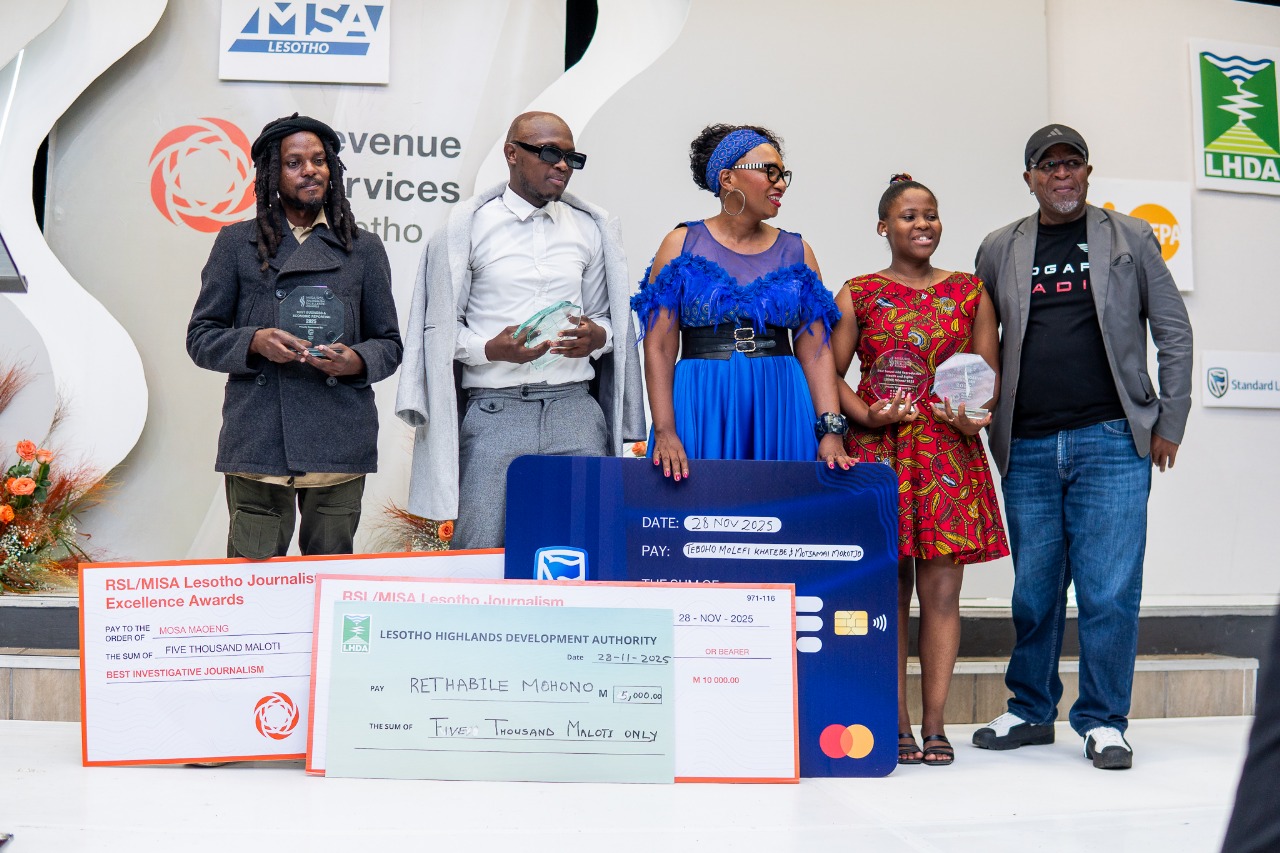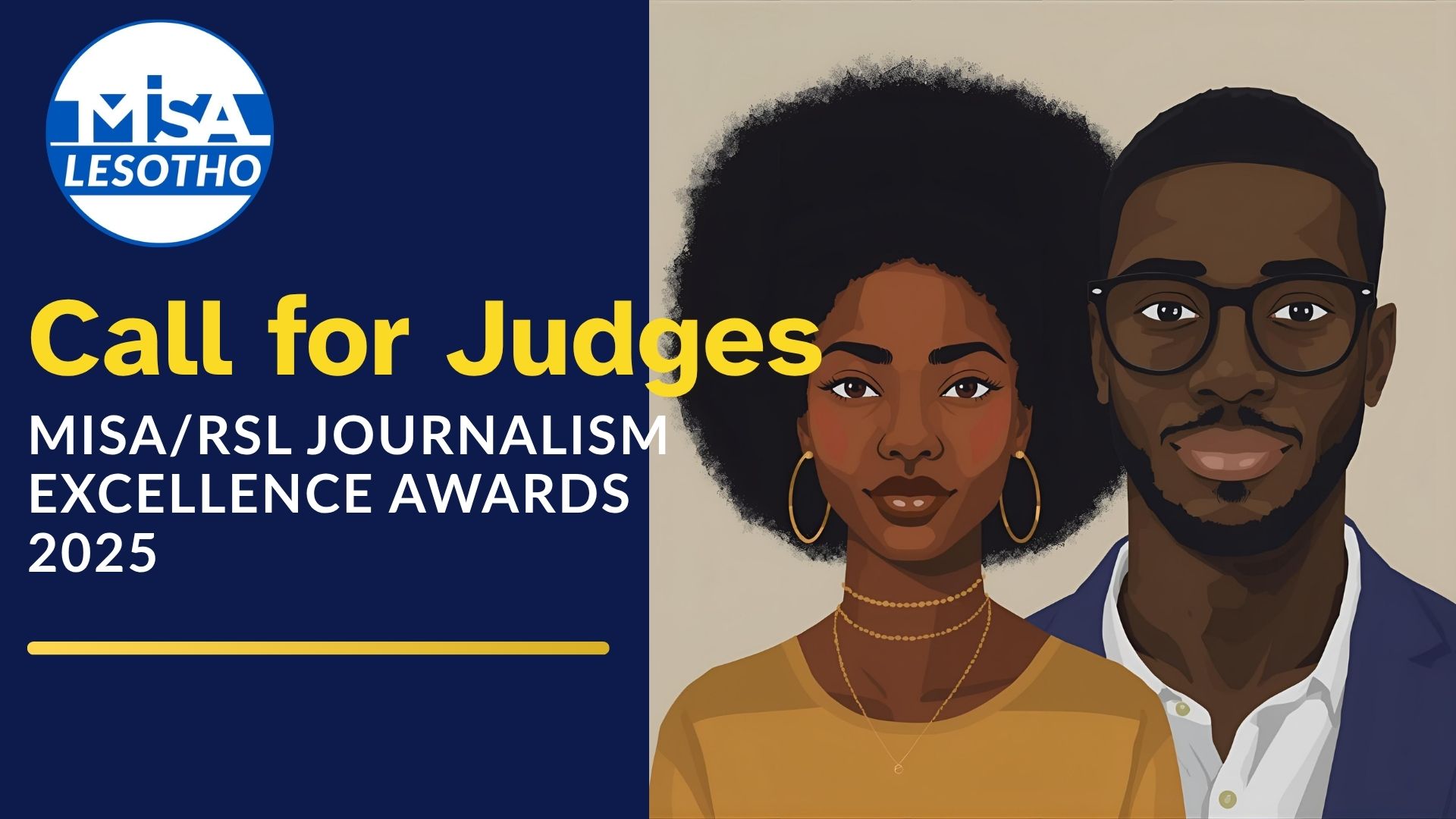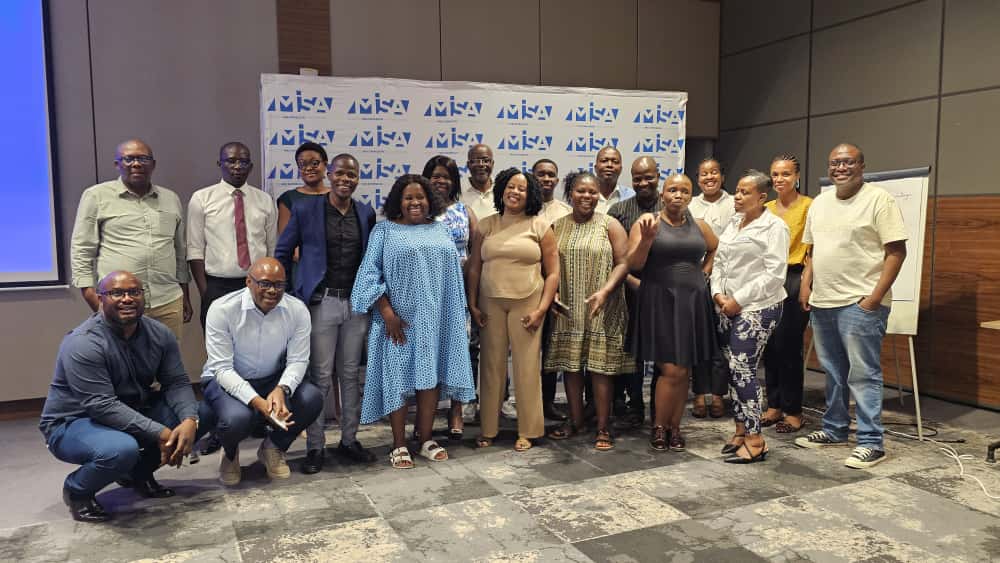Media professionalisation
To help address this issue, MISA Lesotho holds a number of workshops and trainings (for more details visit our ANNOUNCEMENTS page) to improve media professionalisation, together with various local and international partners.
Previous trainings and workshops:
- Investigative journalism I. Supported by the US Embassy in Lesotho, this workshop introduced 40 local journalists to basic investigative journalism, including the use of online tools.
- Investigative journalism II. This build upon the previous investigative skills learned by the 40 participants. It was held together with South Africa’s amaBhungane Centre for Investigative Journalism.
- Information Safety and Internet Security. Thirty journalists attend this training by USAID’s Information Safety and Capacity Project to improve their safety online.
- Election Reporting. The training was held for 40 journalists to contribute to the peaceful holding of elections. It was supported by the Open Society Initiative for Southern Africa.
- Local Government Elections Reporting. This training for 40 journalists aimed to contribute to the peaceful holding of the local government election.
- Media Clinics. Supported by the US Embassy in Lesotho, we have also held clinics focusing on individual skills such as interviewing techniques and radio production.
MISA Lesotho has had feedback of improved professionalisation thanks to such trainings, especially in the print media. However, it is important to stress that for media standards to continue to improve, journalists need continued training and further development opportunities.
Media professionalisation news from our chapters
Organizations Advocate Ethical Use of AI in Broadcasting
By Lekhotso Mokatsa In celebration of World Radio Day, the Basotho Media Development Agency (BMDA), with support and mentorship from the Media Institute of Southern Africa (MISA) Lesotho, in collaboration with UNESCO, the Lesotho Communications Authority (LCA), and...
MISA/RSL Journalism Excellence Awards 2025 Celebrate Top Basotho Journalists
The Media Institute of Southern Africa - Lesotho Chapter (MISA Lesotho), in partnership with the Revenue Services Lesotho (RSL), hosted the MISA/RSL Journalism Excellence Awards 2025 at Victory Hall last Friday, November 28th, honouring outstanding media work across...
Call for Judges: MISA/RSL Journalism Excellence Awards 2025
The Media Institute of Southern Africa - Lesotho Chapter (MISA Lesotho), in partnership with the Revenue Services Lesotho (RSL), is inviting applications and nominations for judges of the MISA/RSL Journalism Excellence Awards 2025. Launched in 2024, these prestigious...
Growing a Culture of Fact-Checking in Lesotho
In April 2025, MISA Lesotho was accepted into the CheckDesk Incubation Program under the African Fact-Checking Alliance (AFCA) Fellowship. The program, supported by Code for Africa, enabled MISA Lesotho to establish our first dedicated fact-checking desk, equipping...
MISA Lesotho Joins Regional Voices Advancing Digital Rights and Media Freedom at FIFAfrica 2025
MISA Lesotho joined regional and international actors in the digital rights and media freedom space at the Forum on Internet Freedom in Africa (FIFAfrica) 2025, held in Windhoek, Namibia, from 22 to 27 September 2025. The forum, hosted annually by the Collaboration on...








